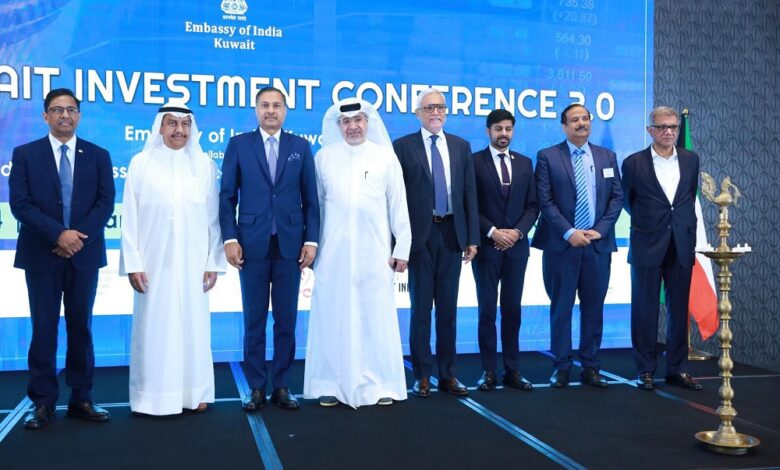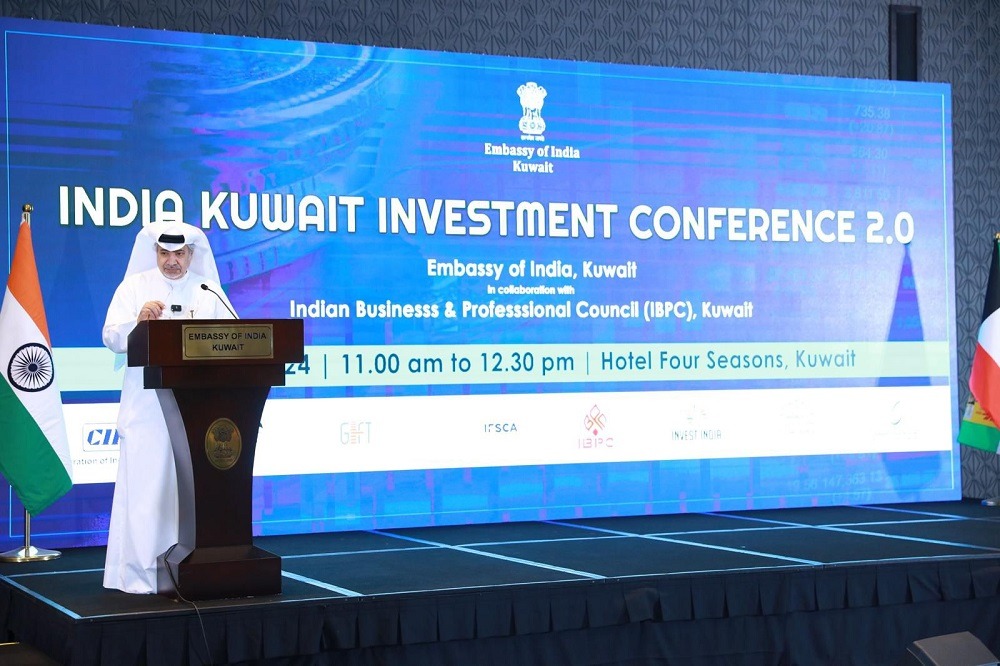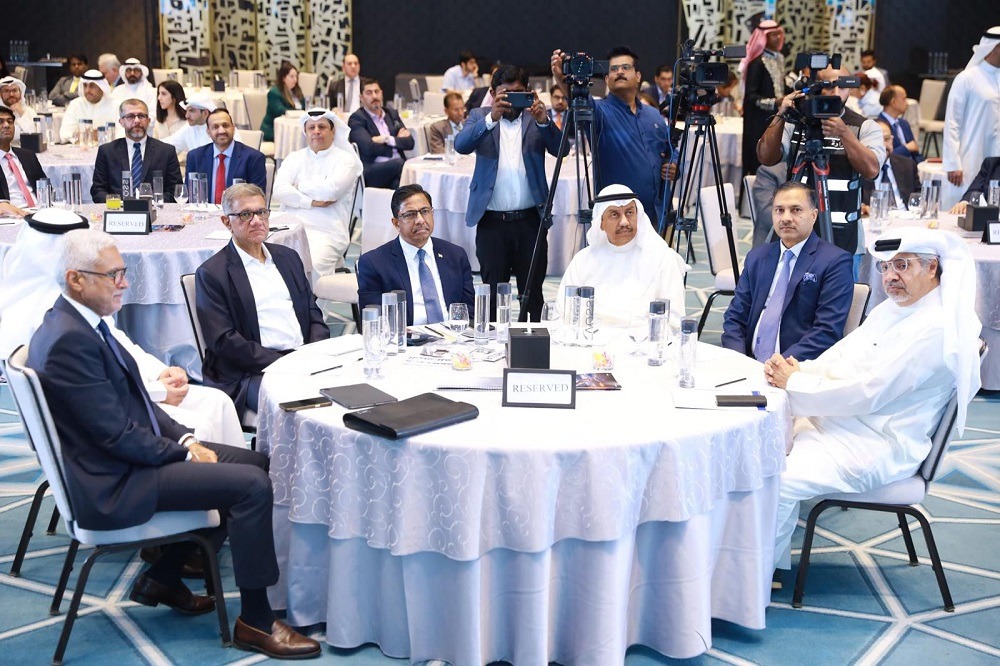India’s meteoric rise: Fastest growing global economy hits $3.5 trillion GDP milestone
H. E. Dr. Adarsh Swaika, the Indian Ambassador to Kuwait, said India is the only major economy to sustain a growth rate exceeding 6% annually over the past decade, with a gross domestic product growth of 7.2% last year.

-
The foundation of Indian-Kuwaiti relations lies in trade and commerce, emphasizing its enduring relevance in modern times as both nations undergo transformation, said H. E. Dr. Adarsh Swaika, the Indian Ambassador to Kuwait
-
India is anticipated to become the third largest economy in the world by 2027-2028, hosting the largest working population globally, numbering 522 million people.
-
India’s FDI flows during the past ten years amounted to $596 billion, with annual foreign direct investment doubling within eight years from $35 billion to $84 billion last year.
His Excellency Dr. Adarsh Swaika, the Indian Ambassador to the country, remarked that the foundation of Indian-Kuwaiti relations lies in trade and commerce, emphasizing its enduring relevance in modern times as both nations undergo transformation.

India, being the fifth largest economy globally, and Kuwait, with its ambitious 2035 vision, face “the challenge of turning this foundation into an opportunity. Dr. Swaika highlighted the need to identify feasible links and conduct studies to maximize benefits.”
Ambassador Swaika elaborated during the activities of the second edition of the India-Kuwait Investment Conference that India, the fastest-growing major economy globally and the fifth largest economy, boasts a gross domestic product (GDP) of $3.5 trillion. It is anticipated to become the third largest economy in the world by 2027-2028, hosting the largest working population globally, numbering 522 million people. India is the only major economy to sustain a growth rate exceeding 6 percent annually over the past decade, with a GDP growth of 7.2 percent last year.
India has consistently attracted FDI
Ambassador Swaika added that India has consistently attracted foreign direct investment (FDI), reflecting investors’ confidence in the country’s economic fundamentals and growth prospects. He explained that a national system for single-window clearance has been implemented at both the central and state government levels. Foreign direct investment flows during the past ten years amounted to $596 billion, with annual foreign direct investment doubling within eight years from $35 billion to $84 billion last year.

Investment opportunities
His Excellency explained that India offers a variety of investment opportunities in various sectors, including manufacturing, infrastructure, renewable energy, technology, healthcare, and agriculture. Initiatives such as “Made in India” and “Digital India” work to enhance the attractiveness of investment in India.
The Ambassador stated that the Productivity-Linked Investment Program, with financial incentives worth $44 billion to boost domestic production in 14 priority sectors, is a major step in this regard. He noted that Apple’s exports of “Made in India” iPhones under the Production-Linked Incentive Plan system have doubled from $5 billion to $10 billion this year.

India has emerged as a global hub for innovation and technology
Ambassador Swaika stressed that India has emerged as a global hub for innovation and technology, boasting a thriving startup ecosystem and a skilled workforce. It is projected to become a trillion-dollar digital economy by 2026 and currently hosts the world’s third-largest startup ecosystem, with 80 new startups registered every day.
The Ambassador stated that none of this would have been possible without the pro-business reforms implemented by the Indian government. Over the past five years, India has jumped 79 places in the World Bank’s Ease of Doing Business Index. Initiatives such as Goods and Services Tax (GST), Insolvency and Bankruptcy Code (IBC), among others, have streamlined processes and created a more favorable investment environment.
Saleh Al Sulami, Chairman of the Board of Directors of the Federation of Investment Companies, highlighted the enduring and prosperous Kuwait-India relationship, emphasizing trust, mutual respect, and shared economic interests. He noted that this partnership, evolving beyond diplomacy, has fostered continuous cooperation and fruitful investments. India and Kuwait have a longstanding history of collaboration across sectors such as energy, infrastructure, finance, and technology. Their strategic locations and vibrant economies complement each other, offering ample opportunities for investment and regional trade.

Al-Sulami added, “The value of bilateral trade between Kuwait and India amounted to about $13.8 billion in the fiscal year 2022-23, reflecting a continuous upward trend over the past decade. India stands as one of Kuwait’s largest trading partners, with main exports including petroleum products, chemicals, and machinery, while imports from India encompass textiles, medicines, and agricultural products.”
Kuwaiti investments in India surpass $30 billion
He highlighted Kuwaiti investments in India surpassing $30 billion across sectors like infrastructure, communications, and renewable energy. Indian companies reciprocate with investments in Kuwait’s construction, healthcare, and hospitality sectors, fostering cultural and personal connections alongside economic growth.













